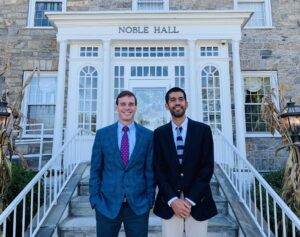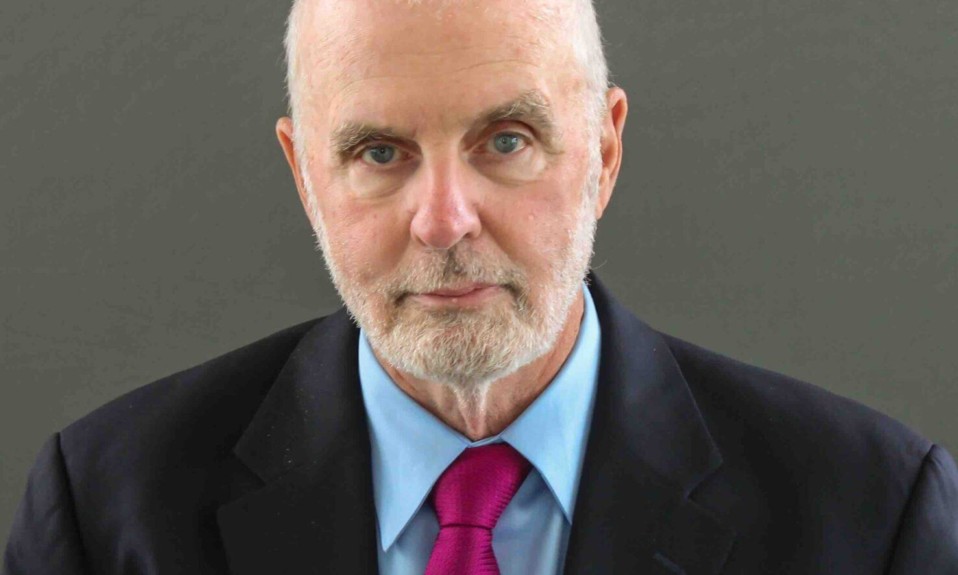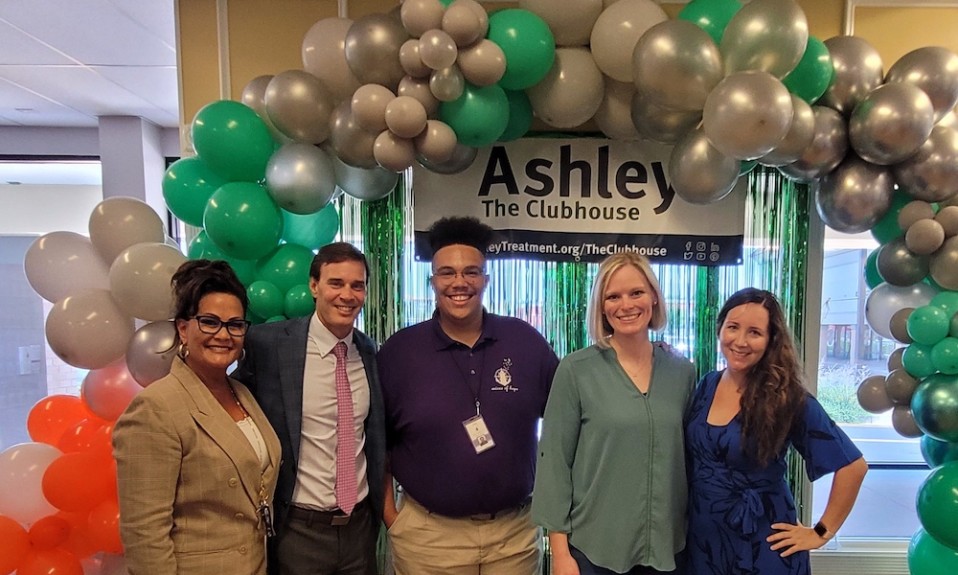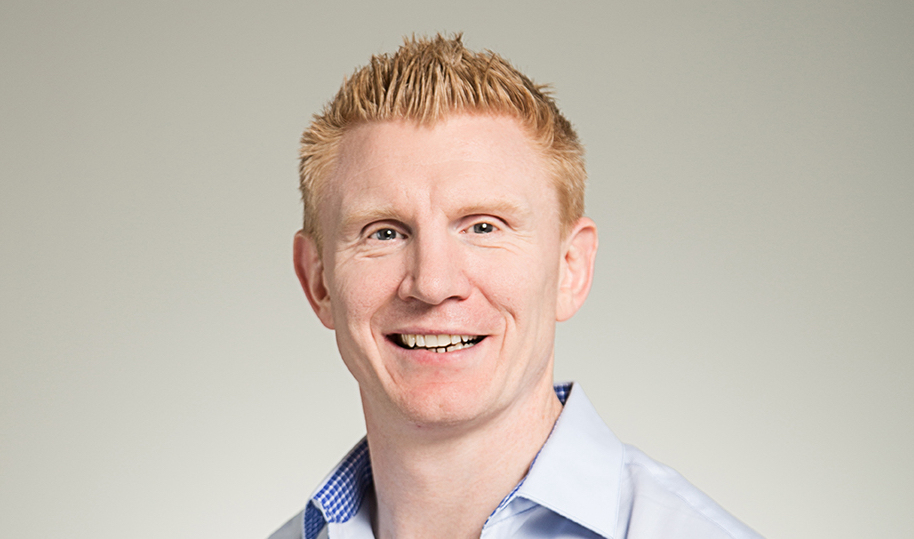As he prepares to hand the reins to two new co-CEOs, the highly respected treatment leader reflects on the future of treatment and his mission to elevate care
By Jennifer Taylor
November 10, 2020Last month, Ashley Addiction announced its longtime CEO David Nassef would be stepping down next spring and handing the reins to a new generation and management model: two co-CEOs who have long worked alongside Nassef at the treatment center.

Beginning March 1, 2021, Alex Denstman, senior vice president and chief growth officer, and Greg Hobelmann, M.D., senior vice president and chief medical and clinical officer, will assume the roles of joint CEOs at the Havre de Grace, Md.-based facility.
Nassef will continue to serve as senior advisor and envoy for the organization. After serving as Ashley’s president and CEO twice over the years, the core values of this legacy are what he hopes to pass on as the treatment center embarks on a new era in leadership.
The change signals a vision at Ashley that will honor its legacy as a 12-step-based treatment center while continuing to follow evidenced-based treatments. The 147-acre campus, located on the banks of Chesapeake Bay, has treated more than 40,000 patients and offers inpatient and outpatient treatment, sobriety enrichment, community outreach, family and children’s education and specialty programs. At this pivotal moment for Ashley Addiction, we asked Nassef about his tenure, his proudest accomplishments at Ashley and where he thinks addiction and treatment care innovation and outcomes need to go next.
Early Days at Ashley: 1996
Even before Nassef first joined in 1996, he was deeply aware of the legacy its renowned founder, Father Joseph C. Martin, S.S., and his friend and business partner, Mae Abraham, created in their years as pioneers in addiction recovery. Father Martin was known for his early holistic and compassionate approach to healing while destigmatizing addiction, which was, at that time, framed as a choice rather than a disease.
Nassef came to the center as a member of its board of directors and went on to serve more than 15 years as the chairman of its board. He soon recognized Ashley’s other early innovations, like its approach to working with insurance companies and, later, a first-of-its-kind program designated for patients specifically dealing with relapse.
“That’s when there was a real battle going on between treatment providers and insurance providers over who were the good guys and who were the bad guys, if you will,” Nassef says. “Rather than have the attitude of it’s us versus them, Ashley was taking an innovative approach as it was dealing with insurance companies in terms of that relationship.”

A Personal Connection
However, it wasn’t until Nassef’s son, who was in his 20s at the time, became a patient at Ashley that Nassef witnessed something beyond innovation—the ability to heal. In another nod to Father Martin, Nassef describes a family wellness program that ultimately released his own family from the guilt associated with bringing its child to treatment.
“I think the guilt of a parent is incredible,” Nassef says. “As parent[s], it gave us back our dignity.”
Today, that aspect of family restoration remains a priority at Ashley because Nassef recognized that the struggle with addiction extends beyond the afflicted to family members and friends. Dignity was a big part of what Father Martin would preach, Nassef says, adding the message was: “You’re not a bad person. You’re a sick person. And we’re going to help you with that.”
What have you been particularly proud of over the last 25 years?
Nassef: Ashley’s always looking to be innovative. We’ve never settled with, “We’re good.” Father Martin’s [philosophy]: Don’t let the good be the enemy of the excellent. Don’t be satisfied with being good. Don’t be satisfied with being in the “top 10” treatment programs. Keep looking to be better. I think that’s what I’m the most proud of. The legacy. We can be innovative. We welcome innovation. We are eager for it. We’re willing to learn better ways, but we’re bringing our legacy with us. There’s a secret sauce here at Ashley that we’re carrying with us. You don’t have to give up what was really good with Ashley. I hate the word “change.” Change means you’re doing something wrong. Right? So you’ve got to change it. I like the word “evolve,” which respects all of the good of the past. You’ve got to grow.
I hate the word ‘change.’ Change means you’re doing something wrong. Right? So you’ve got to change it. I like the word ‘evolve,’ which respects all of the good of the past. You’ve got to grow.”—David Nassef, outgoing CEO and chairman of the board, Ashley Addiction
I’ve actually learned from Alex and Greg that the industry has got to start seeing itself more as part of the healthcare system. Up until very recently, I never thought about that. There was the healthcare system. There’s the treatment system. Alex and Greg have taught me that the future is to be part of a broader healthcare system. We’re not something separate from; we are part of, and need to be seen like that.
What policy changes do you think are most needed in the addiction field?
Nassef: It’s very clear to me, as somebody who understands how things happen from a policy point of view, that we as an industry have done a terrible job of educating policymakers on the disease of addiction and its implications on society as a whole. We started this conversation with talking about the industry being seen as part of the healthcare system as opposed to something separate. Let’s not be adversarial with insurance companies. We all have the same common goal. We have to do a much better job, in my opinion, of representing our industry with policymakers, on both sides of the aisle, both sides of the Hill, and state capitols, etc.
We brought a couple of lobbyists to Ashley. The first thing we did [with one] was bring him over to the dining room to have lunch. The dining room was filled. He said, “Where are the patients? Where are the addicts?” I said, “You’re looking at them.” They’re old, they’re young, they’re white, they’re black. He had this vision of what an addict is. And then he walked into the dining room and saw 100 addicts, and that vision didn’t fit what he was looking at.
As you look back on your legacy, what’s your TTT: top treatment takeaway?
Nassef: I think to be successful in treatment, you need to treat the mind, the body and the soul equally. And I think I’ve just defined what we’re trying to do and always try to do at Ashley.














